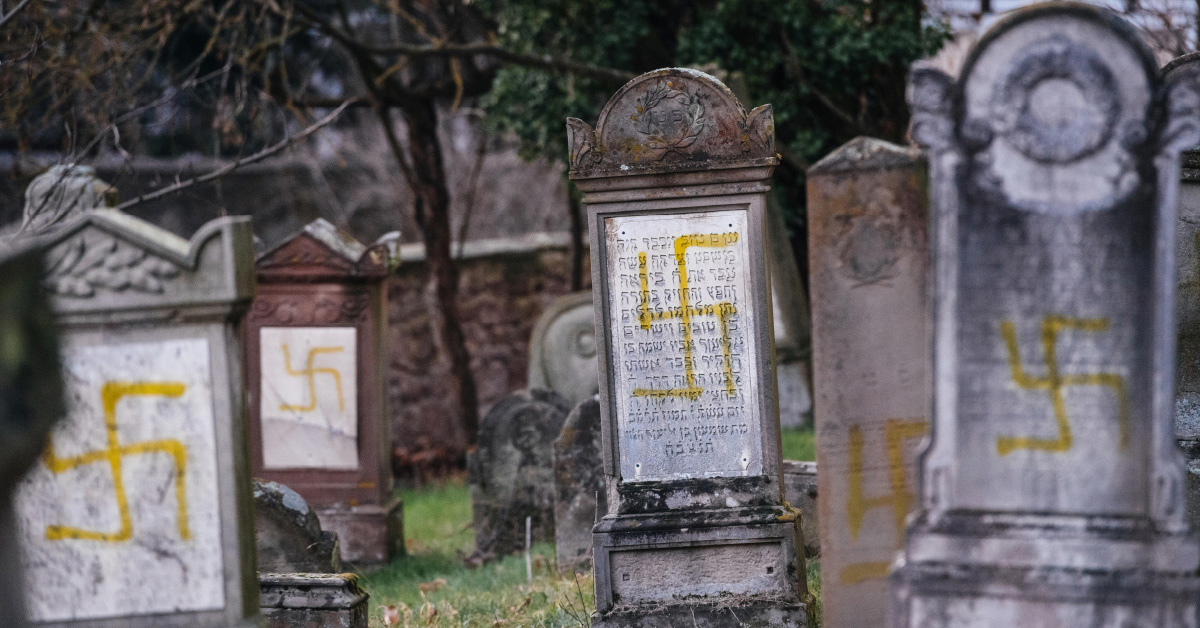
Addressing Antisemitism: Contemporary Challenges seeks to explain the recent upsurge of Jew hatred in the contemporary world. Timed to coincide with International Holocaust Remembrance Day and co-sponsored by the Institute for the Study of Contemporary Antisemitism (ISCA) at Indiana University, the symposium brings together prominent scholars to discuss the challenge of defining antisemitism, explaining its explosion in Europe and the United States, understanding its dissemination through digital media, and determining how scholars and activists should best combat it in an era of intensifying global turmoil.
This symposium is presented in partnership with Indiana University’s Institute for the Study of Contemporary Antisemitism (ISCA) and has received generous support from the Achelis & Bodman Foundation, the David Berg Foundation, the Combat Antisemitism Movement (CAM), the American Jewish Committee’s Edward M. Chase Educational Fund, Robert S. Rifkind, the Moise Y Safra Foundation, and the Office of the President, Fairfield University. The symposium is the fourth installment in a larger series of public symposia sponsored by the Center for Jewish History’s Jewish Public History Forum.
This program is supported, in part, by public funds from the New York City Department of Cultural Affairs, in partnership with the City Council.
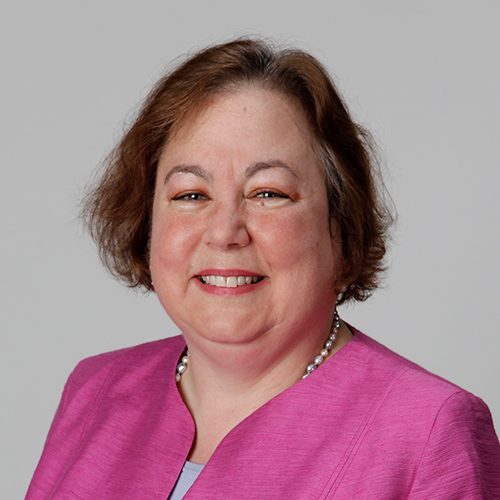
Senator Liz Kruger will speak about the rise in antisemitism here in New York and her efforts to combat it.
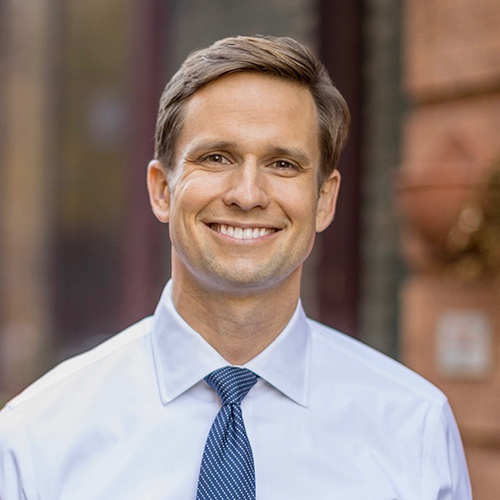
Council Member Bottcher will speak about the importance of solidarity.
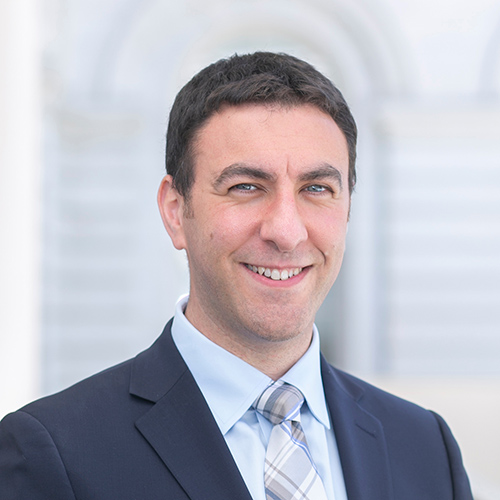
Council Member Dinowitz will speak about working to bring jewish issues to the forefront of New York City legislative matters.
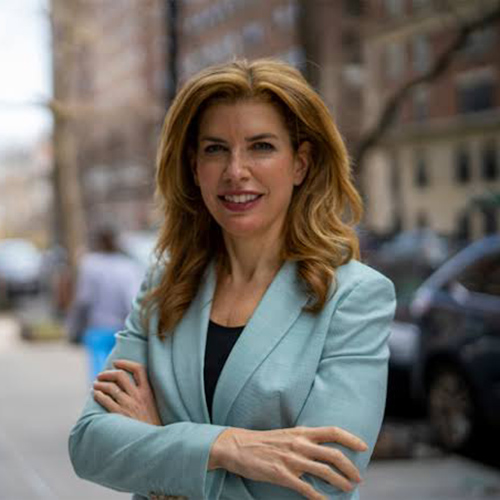
Council Member Menin will speak about her family experience during the Holocaust and her efforts to combat antisemitism.
Although Jew hatred dates back millennia, historians disagree on whether it should be called “antisemitism.” While some apply the term to violent events that have taken place across the entirety of Jewish history, others contend that alternative terms, such as “anti-Judaism” and “Judeophobia,” better describe the phenomenon in certain eras. Particularly in recent years, scholars and policymakers have debated the meaning of antisemitism by analyzing the role of political considerations in shaping how the term has been employed. Panel #1 addresses these and other issues by exploring competing definitions of antisemitism, examining how they relate to the controversial notion of antizionism, and determining how both terms have been affected by Hamas’s terror attack against Israel.
Fairfield University
University of Michigan
Academic Engagement Network
CJH / Fairfield University
Antisemitism has assumed especially worrisome forms in the present-day United States. Whether appearing as coded dog whistles, straightforward hatemongering, or outright violence, attacks against Jewish persons, property, and interests have intensified in contemporary America. Panel #2 focuses on the ideological sources of this hatred by exploring the culpability of broader political and religious forces, including the growing influence of white supremacism, neo-fascism, Christian nationalism, and radical Islamism.
American University
Brandeis University
Fordham University
University of Michigan
Antisemitism in contemporary Europe both resembles and diverges from present-day antisemitism in the United States. The rise of authoritarian populism in Eastern European countries, such as Poland, Hungary, and Russia, has promoted new forms of Holocaust denial and rhetorical attacks against global “Jewish” forces. In western European countries, such as England, France, and Germany, meanwhile, antisemitism has been shaped more by tensions deriving from the rise of multicultural societies, disputes about the State of Israel, and the ongoing threat of radical Islamism. Panel #3 examines the extent to which European antisemitism is a homogenous or heterogeneous phenomenon.
University of Ottawa
Claremont-McKenna College
Kingston University, UK
Executive Director, YIVO Institute for Jewish Research
To what degree has present-day antisemitism been shaped by new technologies and cultural trends? Although present-day Jew hatred has assumed familiar forms rooted in time-honored stereotypes, the ways in which it has been disseminated are dramatically new. The digital revolution – visible in the rise of the Internet, smart phones, and social media – has made spreading hatred easier than ever before. Panel #4 examines how the unregulated world of digital media has injected antisemitic ideas into mass politics and popular culture, a trend that has dramatically intensified since the Hamas terror attacks of October 7, 2023.
Indiana University
Independent Journalist
Brandeis University
Carleton University
How can contemporary antisemitism be combatted? Because the scholarly study of anti-Jewish hostility is all too often divorced from the work of those who respond to it, there is a greater need for synergy between knowledge and activism. If scholarship at its best can be constructively linked to the efforts of professional practitioners in the agencies of government and civil society, everyone stands to gain. Session #5 explores what can be done to foster closer ties between scholars and activists in a time of escalating hostility against Jews in the United States and beyond.
American Jewish Committee
AMCHA Initiative
CEO, Combat Antisemitism Movement
Institute for the Study of Global Antisemitism and Policy
Indiana University
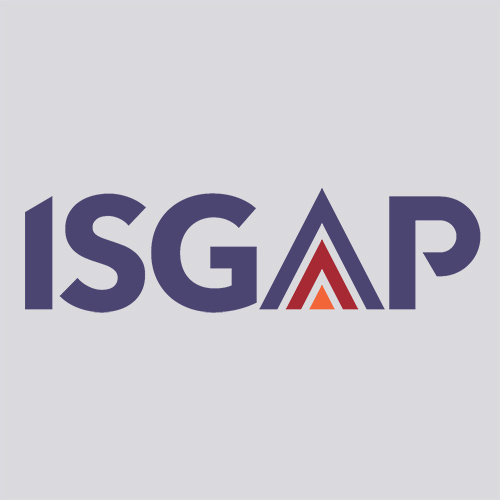
Yehudit Barsky is a Middle East counterterrorism specialist who researches the nexus between Islamist movements and antisemitism. Her research interests encompass radicalization methodologies in anti-Semitic extremist movements, and the intersection between recruitment systems of jihadist and other extremist organizations. She is a senior research fellow at the Institute for the Study of Global Antisemitism and Policy and is the author of Hamas: The Islamic Resistance Movement in Palestine, The Islamic Jihad Movement in Palestine, Hizballah: The Party of God, Al-Qaida, Iran and Hizballah: A Continuing Symbiosis, Terrorist Incidents and Attacks Against Jews and Israelis in the US: 1969-2016 and Islamist Antisemitism in the United States.

Erik Bottcher, elected in 2021 to represent City Council District 3, is a devoted public servant and activist committed to progressive causes. Raised as the only openly gay person in an Adirondack town, his personal struggles fueled a lifelong dedication to marginalized communities.
Beginning in 2009, he served as LGBTQ & HIV/AIDS Community Liaison in the City Council, organizing grassroots campaigns on various issues including hate crimes, transgender rights, housing for people with HIV/AIDS, and marriage equality.
As the statewide LGBTQ Community Liaison in the governor’s office, Erik played a pivotal role in achieving marriage equality in New York. From 2015 to 2021, he served as Chief of Staff to Council Member Corey Johnson, addressing diverse community needs. Since taking office in 2022, Erik has emerged as one of the most active members of the New York City Council, leading on critical issues like sanitation and mental health crises, contributing to the restoration of pre-pandemic sanitation services, and shaping efforts to address the city’s mental health challenges.
Erik is Co-Chair of the Council’s Manhattan Delegation and is a member of the LGBTQ+ Caucus. He serves on the following City Council committees: Mental Health, Sanitation, Public Safety, Land Use, Zoning, Consumer Affairs, Civil Service and Labor.
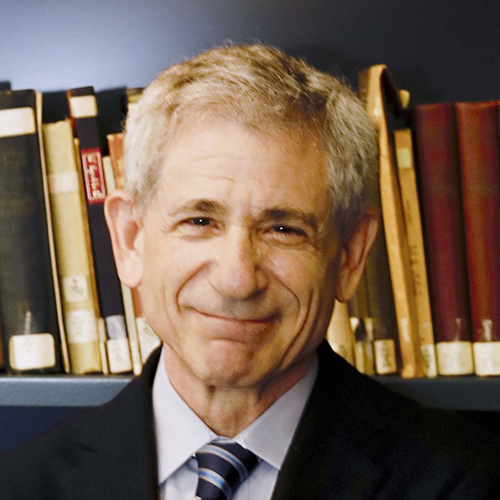
Jonathan Brent is a historian, publisher, translator, writer, and teacher. From 1991-2009, he was Editorial Director at Yale University Press where he established the Annals of Communism series. In 2009 he became Executive Director and CEO of The YIVO Institute for Jewish Research where he initiated The Edward Blank YIVO Vilna Online Collection Project in 2014. His books include Stalin’s Last Crime (2003) and Inside the Stalin Archives (2008). Brent has translated poems of Joseph Brodsky and Vladimir Mayakovsky and teaches history and literature at Bard College. In 2019 Brent received the Cross of the Knight of the Order for Merits to Lithuania in recognition of his work in preserving prewar Jewish archives of Lithuania.

Council Member Eric Dinowitz, born and raised in the Northwest Bronx, is dedicated to serving his community. As the Chair of the Committee on Higher Education, Eric has been a staunch advocate for investments in the City University of New York (CUNY). His efforts have played a pivotal role in securing funding for CUNY, ensuring that students have the resources they need to succeed.
In addition to his work on higher education, Council Member Dinowitz has taken a proactive stance against antisemitism on college campuses. Leading a high-profile hearing, he addressed the issue head-on, resulting in a significant million-dollar investment from CUNY to combat antisemitism and promote a safe and inclusive environment for all students.
Council Member Dinowitz has also been at the forefront of leadership within the Jewish Caucus since his election. Under his guidance, the caucus has undertaken crucial initiatives, particularly in addressing hate crimes. This includes a focus on cyber and online threats, with special attention to protecting children from such dangers. Eric's commitment to fostering a community free from discrimination and intolerance is evident in the impactful work carried out by the Jewish Caucus under his leadership.
Beyond his role in city politics, Eric Dinowitz has a background as a community activist, a former special education teacher, and Chapter Leader for the United Federation of Teachers. His tenure as the Aging Chair of Bronx Community Board 8 reflects his dedication to addressing the diverse needs of the community.
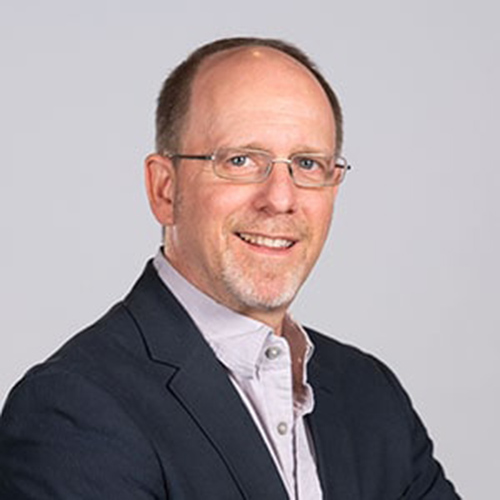
Dr. Glenn Dynner is the Carl and Dorothy Bennett Professor of Judaic Studies and Director of the Bennett Center for Judaic Studies at Fairfield University. He received his B.A. with honors in Comparative History from Brandeis University, an M.A. with honors from McGill University in Jewish Studies, and his PhD from Brandeis University in the Department of Near Eastern and Judaic Studies in 2002. Dynner is the author of several acclaimed books published by Oxford University Press: The Light of Learning: Hasidism in Poland on the Eve of the Holocaust (2024), Men of Silk: The Hasidic Conquest of Polish Jewish Society (2006), winner of the Koret Publication Prize and a National Jewish Book Award Finalist, and Yankel’s Tavern: Jews, Liquor, & Life in the Kingdom of Poland (2013), which received Honorable Mention for the 2013 Jordan Schnitzer Book Award. Dynner serves on the Center for Jewish History’s Academic Advisory Committee.
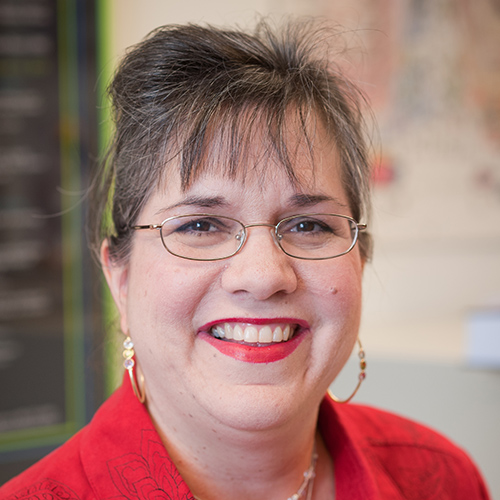
Miriam F. Elman has served as Executive Director of the Academic Engagement Network since 2019. From 2009-2022 she was a tenured Associate Professor of Political Science at Syracuse University, where she held the title of Robert D. McClure Professor of Teaching Excellence at the Maxwell School of Citizenship & Public Affairs. An award-winning scholar and teacher, Elman has edited seven books, a number of special issues for academic journals, and is the author of over 70 peer-reviewed articles and essays. Elman received her B.A. from the Hebrew University of Jerusalem and her M.Phil. and Ph.D. from Columbia University.
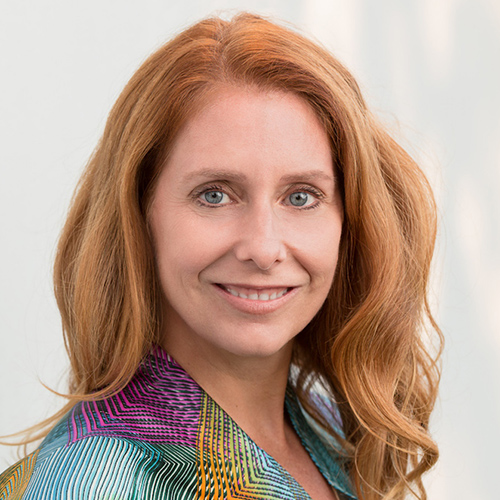
Jennifer Evans is Professor of European History at Carleton University in Ottawa Canada. She has just published The Queer Art of History: Queer Kinship After Fascism with Duke University Press and the co-written monograph Holocaust Memory and the Digital Mediascape with Bloomsbury UK. She oversees a multi-year, multi-platform big data project on social media, online hate, and the weaponization of history and is co-curator of the New Fascism Syllabus.
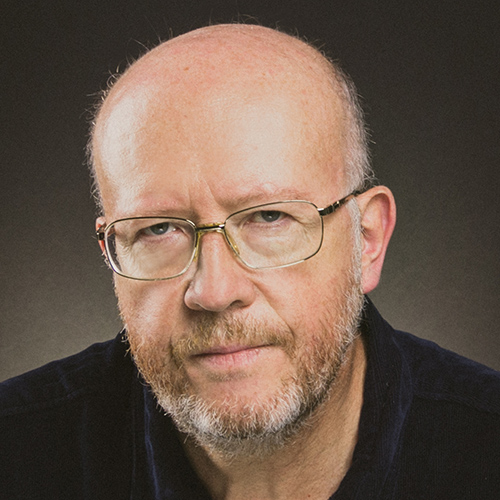
Jan Grabowski is a Professor of History at the University of Ottawa and a Fellow of the Royal Society of Canada. His interests focus on the Holocaust in Poland and, more specifically, on the relations between Jews and Poles during the war. He has authored or edited 20 books and published more than 80 articles in learned journals in many languages. His book, Hunt for the Jews. Betrayal and Murder in German-Occupied Poland has been awarded the Yad Vashem International Book Prize for 2014.
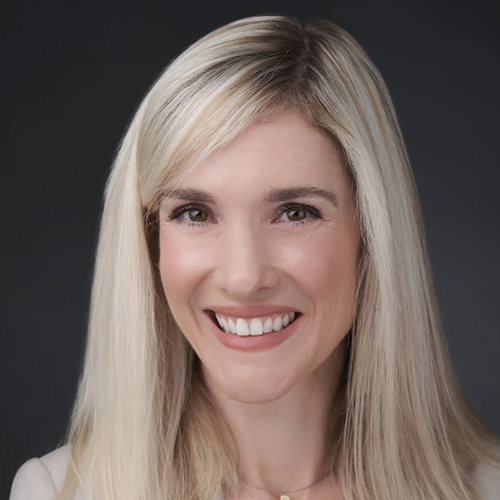
Holly Huffnagle serves as AJC’s U.S. Director for Combating Antisemitism, spearheading the agency’s response to better protect the Jewish community in the United States. She previously served as policy advisor to the Special Envoy to Monitor and Combat Antisemitism at the U.S. Department of State and as a researcher in the Mandel Center of Advanced Holocaust Studies at the U.S. Holocaust Memorial Museum in Washington, D.C. She received her master’s degree from Georgetown University focusing on Jewish-Muslim relations before and during the Holocaust. Most recently, she was a Scholar-in-Residence at Oxford University with the Institute for the Study of Global Antisemitism and Policy.
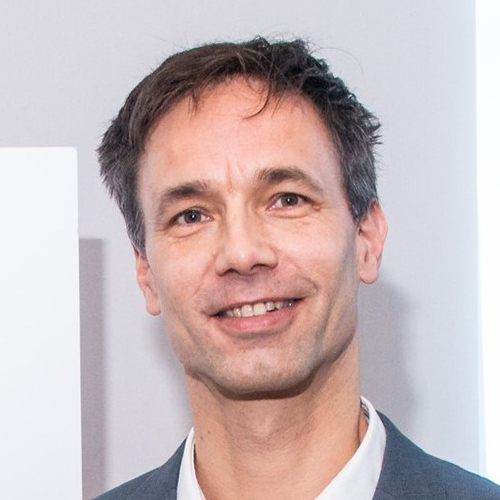
Günther Jikeli holds the Erna B. Rosenfeld Professorship at the Institute for the Study of Contemporary Antisemitism in the Borns Jewish Studies Program at Indiana University. He is an associate professor in Germanic Studies and Jewish Studies and heads the research lab “Social Media & Hate.” His publications include The Return of Religious Antisemitism? MDPI 2021, Europe Muslim Antisemitism: Why Young Urban Males Say They Don’t Like Jews, IUP 2015, and “Was antisemitism on the rise during the tumultuous weeks of Elon Musk’s Twitter takeover?” (with K. Soemer), Journal of Computational Social Science, July 2023.

State Senator Liz Krueger was first elected to the New York State Senate in 2002, and is the Chair of the Senate Finance Committee. She is a strong advocate for women’s rights, tenants’ rights, affordable housing, improved access to health care, social services, environmental sustainability, and public education. She has made reforming and modernizing New York State’s governmental processes, electoral system, and tax policy central goals of her legislative agenda.
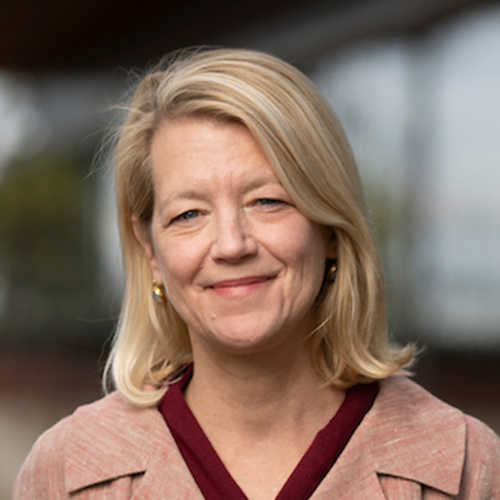
Wendy Lower is the John K. Roth Professor of History and George R. Roberts Fellow at Claremont McKenna College. Lower chairs the Academic Committee of the United States Holocaust Memorial. Her book Hitler's Furies: German Women in the Nazi Killing Fields (2013) was a finalist for the National Book Award and has been translated into 23 languages. The Ravine: A Family, A Photograph, A Holocaust Massacre Revealed, was published in February 2021 by Houghton Mifflin Harcourt, and received the National Jewish Book Award in the Holocaust category, and was shortlisted for the Wingate Prize, and longlisted for a PEN.
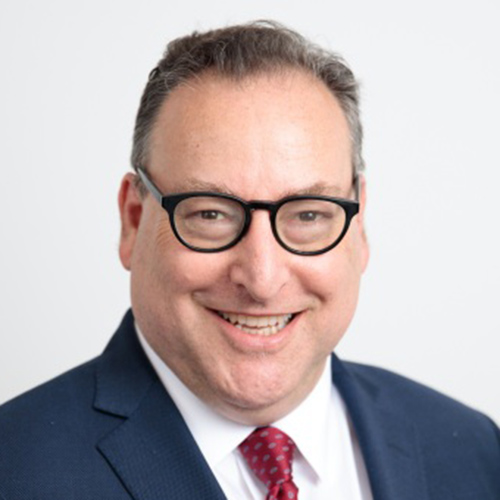
Kenneth L. Marcus is founder and chairman of the Louis D. Brandeis Center for Human Rights Under Law; Distinguished Senior Fellow of the Center for Liberty & Law at George Mason University’s Antonin Scalia Law School; and author of The Definition of Anti-Semitism (Oxford University Press) and Jewish Identity and Civil Rights in America (Cambridge University Press). During his public service career, Marcus served as Assistant U.S. Secretary of Education for Civil Rights; Staff Director at the U.S. Commission on Civil Rights; and General Deputy Assistant U.S. Secretary of Housing and Urban Development for Fair Housing and Equal Opportunity.

Council Member Julie Menin represents District 5, which is the East Side and Roosevelt Island. During her first term in office, she was able to pass 13 bills--including a historic law on creating an Office of Healthcare Accountability and bringing New Yorkers closer to universal childcare. She is currently the Chair of the Committee on Small Business and helped enact several laws for several small businesses, including a bill to create a One Stop Shop portal for all permits and licenses for small businesses to use. She previously worked as the City's Census Director and achieved a historic result where New York City finished first among all major cities. She is also the former Commissioner for the Department of Consumer and Worker Protection as well as the Commissioner of the Office of Media and Entertainment.
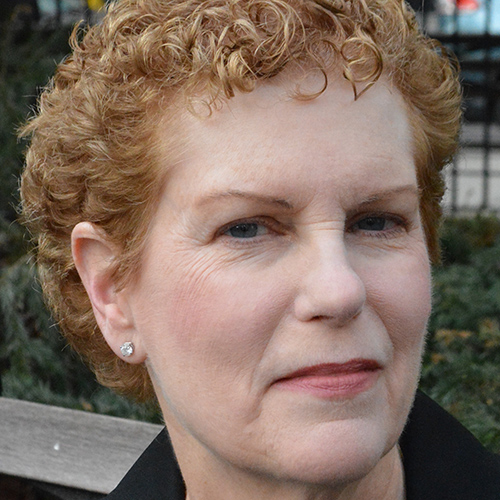
Pamela Nadell America’s Jewish Women: A History from Colonial Times to Today (W.W. Norton) won the 2019 National Jewish Book Award’s “Jewish Book of the Year.” A National Endowment for the Humanities Public Scholars Award supports her current book project, Antisemitism, an American Tradition. Past president of the Association for Jewish Studies, her museum consulting work includes the new core exhibition of the Weitzman National Museum of American Jewish History and the museum planned for the rebuild of Pittsburgh’s Tree of Life complex. In addition, she consults on Jewish studies consultant for productions of the play The Lehman Trilogy.
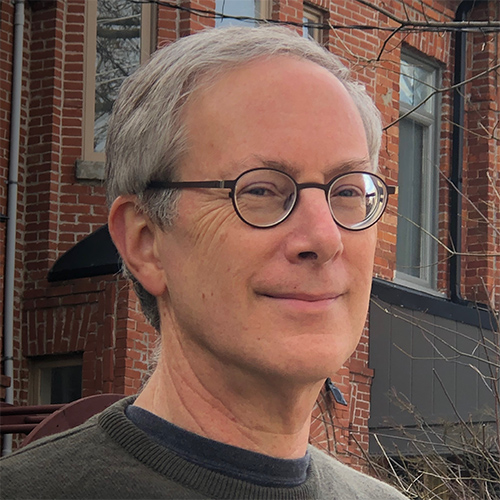
Derek Penslar is the William Lee Frost Professor of Jewish History and the Director of the Center for Jewish Studies at Harvard University. His books have engaged with a variety of approaches and methods including the history of science and technology, economic history, military history, biography, post-colonial theory, and the history of emotions. Penslar is currently writing a book about worldwide reactions to the 1948 Palestine War. Penslar is a Fellow of the Royal Society of Canada, past president of the American Academy for Jewish Research and an Honorary Fellow of St. Anne’s College, Oxford.
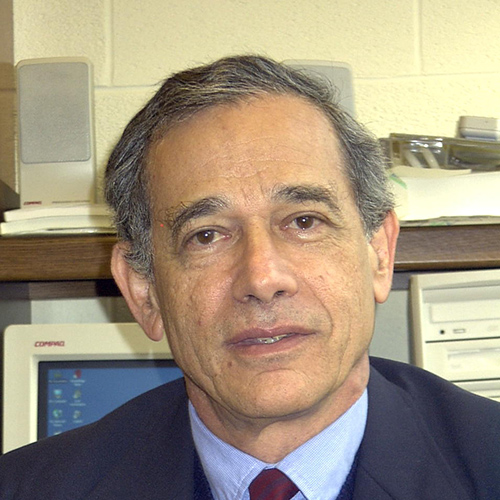
Alvin H. Rosenfeld, Professor of English and Jewish Studies at Indiana University, Bloomington, received his Ph.D. from Brown University in 1967 and has taught at Indiana University since 1968. He holds the Irving M. Glazer Chair in Jewish Studies and is Director of the university’s Institute for the Study of contemporary Antisemitism. He founded Indiana University's Borns Jewish Studies Program and served as its director for 30 years. He is the author of numerous scholarly and critical articles on American poetry, Jewish writers, and the literature of the Holocaust.
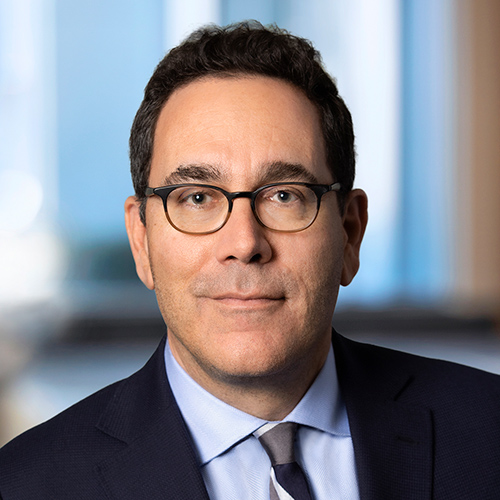
Gavriel D. Rosenfeld is President of the Center for Jewish History and Professor of History at Fairfield University. His areas of specialization include the history of Nazi Germany and the Holocaust, memory studies, and counterfactual history. He is the author of numerous books, including the co-edited volume (with Janet Ward), Fascism in America: Past and Present (Cambridge University Press, 2023), The Fourth Reich: The Specter of Nazism from World War II to the Present (Cambridge University Press, 2019), and Hi Hitler! How the Nazi Past is Being Normalized in Contemporary Culture (Cambridge University Press, 2015. He edits the blog The Counterfactual History Review and is an editor at the Journal of Holocaust Research.
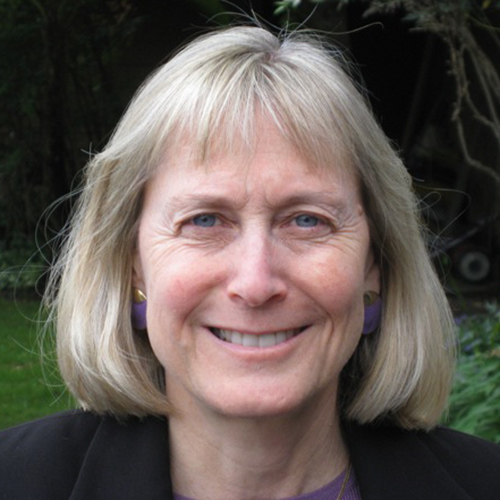
Tammi Rossman-Benjamin is co-founder and director of AMCHA Initiative, a non-profit organization that investigates, documents, and combats antisemitism at institutions of higher education in America. She has written numerous articles about academic anti-Zionism and antisemitism and has lectured widely on these developments and the growing threat they pose to the safety of Jewish students on university campuses. She was a faculty member in Hebrew and Jewish Studies at the University of California Santa Cruz for 20 years.
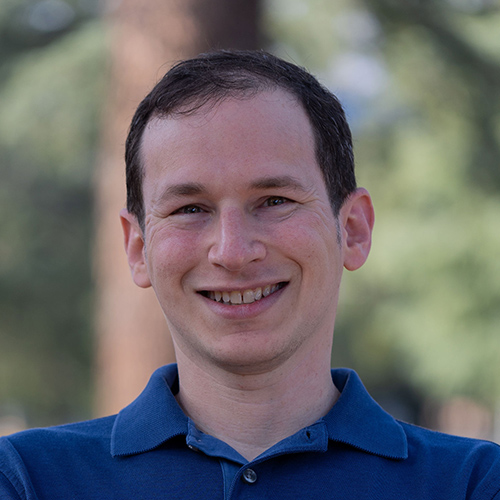
Mike Rothschild is a journalist focused on conspiracy theories, hoaxes, scams, and moral panics. He is the author of the first complete book on the QAnon conspiracy movement, The Storm is Upon Us: How QAnon Became a Movement, Cult, and Conspiracy Theory of Everything, and his newest book is Jewish Space Lasers: The Rothschilds and 200 Years of Conspiracy Theories, on the legendary banking family (to whom he is not related) and its role in antisemitic myth. Additionally, he has worked as an expert witness in cases related to QAnon and the 2020 Election, testified to Congress on the danger of election disinformation, and submitted written testimony to the January 6th Select Committee.
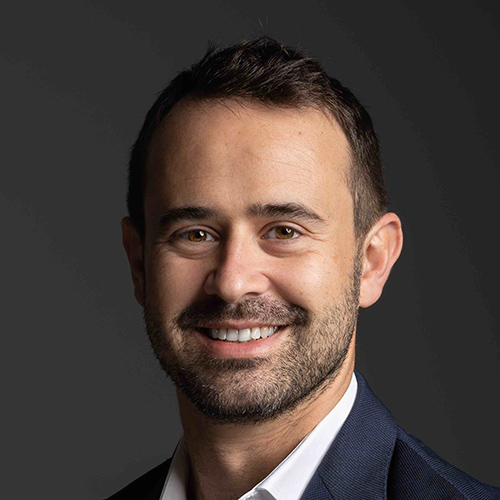
Sacha Roytman serves as CEO of the Combat Antisemitism Movement (CAM). Known for his exemplary leadership skills and strong international connections, Sacha has dedicated his career to advocating for the Jewish people and fostering interfaith relations globally. Prior to joining CAM, Sacha led the Digital Advocacy Unit at the World Jewish Congress, where he initiated the #WeRemember digital education campaign for International Holocaust Remembrance Day. He previously worked for the Rimon Cohen Sheinkman PR firm, and prior to that commanded the Israel Defense Forces’ New Media Operations team. Sacha holds a BA in Interactive Communications from the Interdisciplinary Center Herzliya.
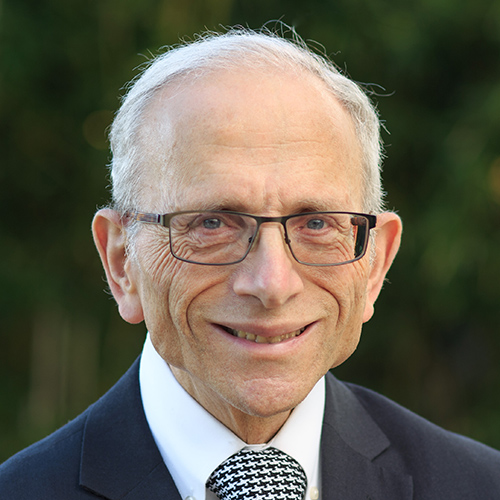
Jonathan D. Sarna is University Professor and the Joseph H. & Belle R. Braun Professor of American Jewish History at Brandeis University. He also is the past president of the Association for Jewish Studies and Chief Historian of the National Museum of American Jewish History in Philadelphia. Author or editor of more than 30 books on American Jewish history and life, his American Judaism: A History won six awards including the 2004 “Everett Jewish Book of the Year Award” from the Jewish Book Council. His most recent books are Coming to Terms with America, a volume of essays; and Yearning to Breathe Free: Jews in Gilded Age America, coedited with Adam Mendelsohn.
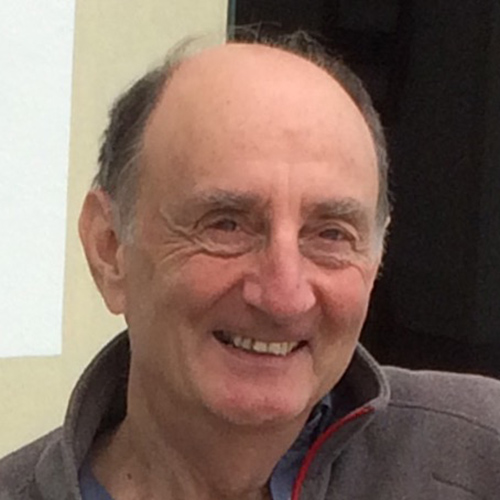
Philip Spencer is Emeritus Professor in Holocaust and Genocide Studies at Kingston University. He is Senior Research Fellow at the London Centre for the Study of Contemporary Antisemitism and Visiting Professor in Politics at Birkbeck College, University of London. He is the author of Antisemitism and the Left: On the Return of the Jewish Question (with Robert Fine) (Manchester University Press 2017), Genocide Since 1945 (Routledge 2012), Nations and Nationalism (Edinburgh University Press 2006), and Nationalism: A Critical Introduction (with Howard Wollman) (Sage 2002).
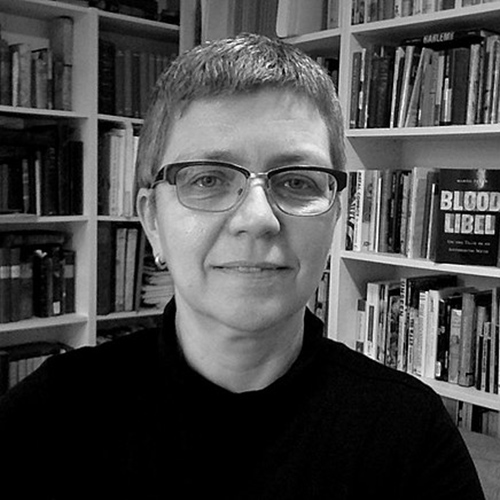
Magda Teter is professor of history and the Shvidler Chair in Judaic Studies at Fordham University. She is the author of Blood Libel: On the Trail of an Antisemitic Myth, which won a National Jewish Book Award; Sinners on Trial: Jews and Sacrilege after the Reformation; Jews and Heretics in Catholic Poland; and Christian Supremacy: Reckoning with the Roots of Antisemitism and Racism.
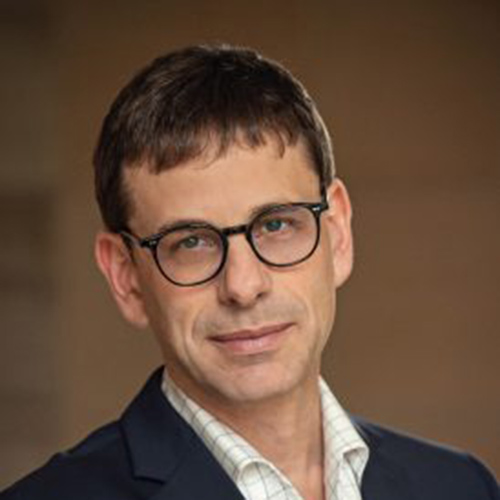
Jeffrey Veidlinger is Joseph Brodsky Collegiate Professor of History and Judaic Studies at the University of Michigan. He is the author of four award-winning books on the history of Jewish life in Russia and Ukraine, including, most recently, In the Midst of Civilized Europe: The Pogroms of 1918-1921 and the Onset of the Holocaust. He currently serves as Chair of the Center for Jewish History's Academic Advisory Council.
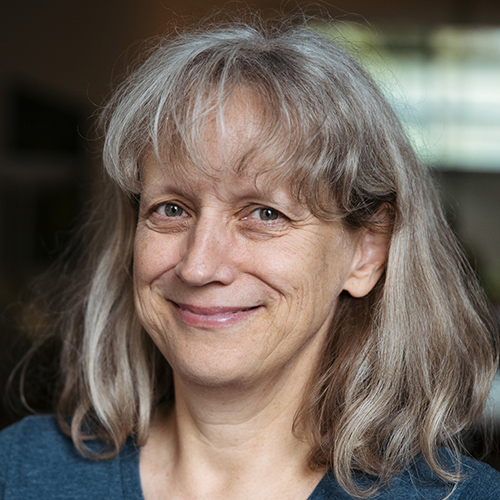
Sabine von Mering is Professor of German and Women’s, Gender, and Sexuality Studies and Director of the Center for German and European Studies at Brandeis University. She holds a Ph.D. in German Studies from the University of California, Davis. Together with Monika Hübscher, she co-edited Antisemitism on Social Media (Routledge, 2022). Previous co-edited volumes include Right-Wing Radicalism Today: Perspectives from Europe and the US (Routledge, 2013). This year she published the English translation of Luisa Neubauer and Alexander Repenning’s call to action Beginning to End the Climate Crisis: A History of Our Future (Brandeis University Press 2023).